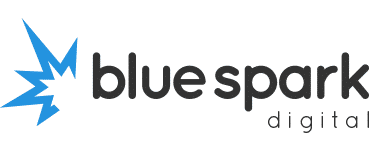DIY Website Builders vs WordPress: When It’s Time to Move Up a Level
You’ve had your website for a while. Maybe you built it yourself on Wix, Squarespace, or GoDaddy Builder. It got the job done. It looked decent enough. It was cheap. But now… it’s not keeping up.
Maybe it’s slow. Maybe it looks dated. Maybe you want to add new features and realise you’re stuck. Or maybe you’re just not getting the results you expected.
That’s usually the point where business owners in Hampshire and Surrey get in touch and ask: “Is it time to move to WordPress?”
If that’s you, here’s a clear, friendly look at when a DIY website builder stops being enough – and what moving to WordPress actually gives you.
Why DIY Builders Seem Great at First
To be fair, there’s a reason so many businesses start with them. Builders like Wix and Squarespace promise:
- No coding needed
- Pre-designed templates
- Drag-and-drop simplicity
- Low monthly cost
- Fast setup
And they deliver on most of that. For a basic website – something like “here’s who we are, here’s what we do” – they’re perfectly fine.
But once your business starts growing, you start hitting walls.
Signs You’ve Outgrown Your DIY Website
Here are the clues that it might be time for something more powerful:
It’s Too Hard to Customise
Templates are fine – until you want to tweak the layout, add a new feature, or make the design match your brand properly. With many builders, you’re stuck with what they offer.
It’s Not Ranking on Google
SEO on DIY platforms can be very limited. Maybe you can set a title or meta description, but things like heading structure, image optimisation, speed performance, and local SEO? Much trickier.
It’s Slow
Many drag-and-drop builders load extra code behind the scenes, which can slow your site down. And that impacts both user experience and search rankings.
You Can’t Add What You Need
Want to add an online booking system? A members-only area? Custom forms? Many builders can’t handle more advanced functionality – or they charge extra for every little add-on.
You’re Paying More Than You Think
That £10/month plan? Often turns into £25–£40/month once you add SSL, remove ads, increase storage, or unlock basic features. Over a couple of years, it adds up.
Why WordPress Is the Logical Next Step
WordPress powers over 40% of the entire internet. It’s open-source, flexible, and powerful enough to run everything from small local business sites to huge corporate platforms.
When set up properly, WordPress gives you:
- Full control over design and layout
- Better SEO tools
- Faster performance with the right setup
- Easier upgrades as your business grows
- Lower long-term costs
And the best bit? You still don’t need to touch any code if your developer builds it right (which I do).
“But Isn’t WordPress Complicated?”
It can be – if you’re trying to build it yourself from scratch. But when you work with someone who knows it inside out, it becomes simple to manage.
I create WordPress sites using flexible layouts and custom content blocks – so you can log in and make updates easily without fear of breaking anything.
If you can edit a Word document, you can update your WordPress site.
What the Move Involves (It’s Easier Than You Think)
A lot of people imagine that moving to WordPress will be a big hassle. But it’s not – especially when I’m handling it for you. Here’s the general process:
- We plan the new site – layout, structure, pages, content
- I build the site on WordPress – often on a test server so your current site stays live
- You preview and approve it – nothing goes live until you’re 100% happy
- We launch it smoothly – no downtime, no stress
I can even help move your domain and email if it’s currently tied up with your old provider.
What You Gain by Upgrading
Here’s what my clients say after moving from DIY to WordPress:
- “I didn’t realise how slow my old site was until now.”
- “It finally shows up in Google.”
- “I can actually make changes without it looking weird.”
- “It looks and feels like a proper business now.”
- “I wish I’d done this sooner.”
If you’re at the stage where your website feels more like a limitation than an asset – that’s a big sign it’s time to upgrade.
What You Can Do Next
If you’re not sure whether WordPress is right for you – or you just want to chat through what’s possible – I’m happy to help.
No pressure, no sales pitch – just honest advice, in plain English.
Let’s figure out whether it’s time for you to move up a level.

